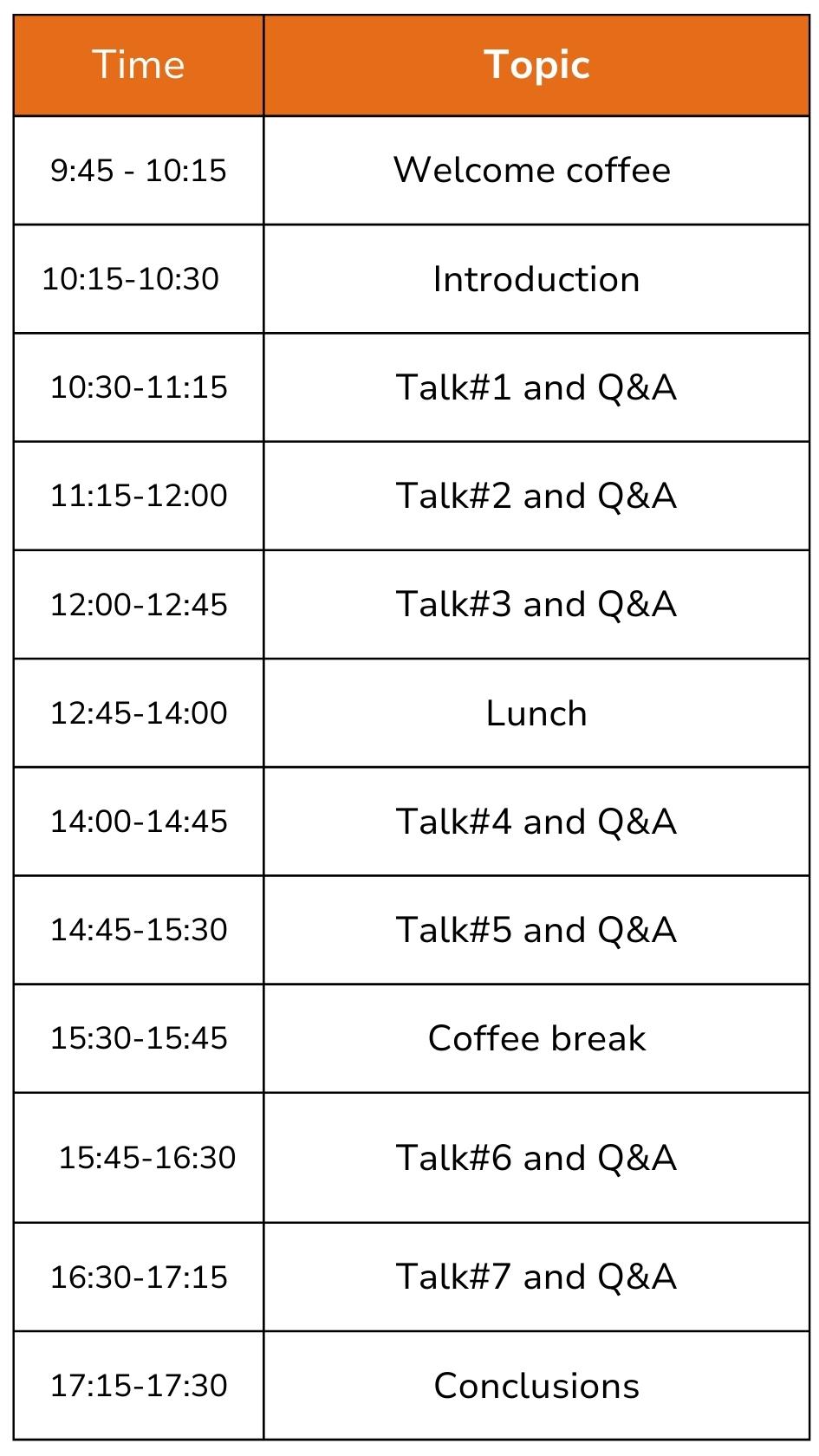ANIMMA Workshops
A 1-day workshop session will be proposed on numerical works and on experimental R&D from fundamental physics to direct applications. Four topics will be addressed in parallel. This workshop session will be held on June 9 2025 at Hotel Meliá Valencia. Each workshop will be composed of 7 invited talks (see table).
Contact: Christelle Reynard-Carette (Aix-Marseille University) – christelle.carette@univ-amu.fr
Workshop 1: Nuclear instrumentation and measurement in research reactors
Conveners: Christelle Reynard-Carette (Aix-Marseille Université, France, christelle.carette@univ-amu.fr) and Gordon Kohse (MIT, USA, kohse@mit.edu)
Abstract: The development of nuclear instrumentation and measurement methods for major nuclear research facilities such as the Jules Horowitz Reactor under construction in France, the reactivated TREAT reactor in the USA and other research reactors in Europe for instance (MARIA, BR2, …). Such facilities will offer extreme conditions requiring accurate, reliable and hardened sensors and detectors. The workshop will focus on recent advancements in nuclear instrumentation, and scientific and technological breakthroughs, through seven invited oral presentations. A variety of key measurement quantities (neutron and photon fluxes, nuclear heating rate, temperature, …) will be addressed and relevant possible topics will be detectors, sensors, irradiation devices, test benches, metrology, miniaturization, data acquisition, among others. The workshop will cover experimental and numerical studies carried out under laboratory conditions and during irradiation campaigns. The workshop will allow scientists and experts to discuss issues related to future challenges and identify potential joint work.
Workshop 2: Novel perspectives for radiation detection materials
Conveners: Ivana Capan (Ruđer Bošković Institute, Croatia, capan@irb.hr) and Takahiro Makino, National Institutes for Quantum and Radiological Science and Technology (QST), Japan, makino.takahiro@qst.go.jp)
Abstract: The recent advancements in the fabrication of high-quality wafers, materials synthesis, and understanding of the influence and effects of radiation (including extraterrestrial radiation) on materials have enabled remarkable and novel perspectives for radiation detection. Besides the well-known Group IV semiconductors, wide-bandgap semiconductors such as SiC, GaN, and Ga2O3 are becoming the driving force for radiation detection materials with impressive radiation hardness. Moreover, research on wide-bandgap semiconductor nanostructures (OD, 1D, 2D, and 3D) indicates the potential future trends. It is reasonable to expect that devices based on semiconductor nanostructures will gain more attention and enable new advancements.
This Workshop is dedicated to all aspects related to the growth, synthesis, characterization, and applications of crystalline materials for radiation detection. The main aim is to provide an overview of the current challenges and future perspectives.
Workshop 3: High-performance data acquisition systems for nuclear applications (fission, fusion, dismantling, safety and safeguards, …)
Conveners: Massimo Morichi (CAEN, Italy, m.morichi@caen.it) and Bruno Soares Gonçalves (IPFN, Portugal, bruno@ipfn.tecnico.ulisboa.pt)
The evolution of innovative electronics is significantly enhancing the capabilities of high-performance data acquisition systems in nuclear applications, including fission, fusion, dismantling, safety, and safeguards. These advancements are enabling the development of increasingly complex and specialized systems to address the unique challenges in these fields. At the same time, next-generation front-end ASICs, digital pulse processors, and streaming readout technologies are driving major progress in precision and data acquisition for nuclear physics research. Additionally, the introduction of advanced power supplies is facilitating the operation of large-scale experiments involving hundreds of channels and multi-detector systems, providing a breakthrough in efficiency and precision for detection measurements in nuclear science.

